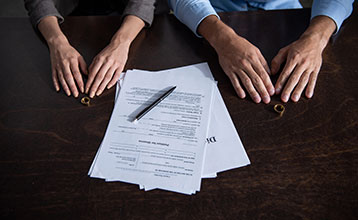In Singapore, the Guardianship of Infants Act of 1934 (GIA) governs the guardianship of minor children. It also deals with administering the assets of any child under guardianship.
Who can be guardians of a child?
- The child’s parents are their ‘natural’ legal guardians. In Singapore, the mother and the father have equal rights and powers concerning the child.
- Appointed guardians
The court can appoint guardians for children below 21 years old, or a parent can appoint a guardian in their will, called a testamentary guardian.
Duties of guardians
Guardianship implies a legal responsibility to care for the child until the age of 21 years old. It relates to the child’s custody, upbringing, and the administration of any property belonging to the child or held in trust for the child.
In exercising their duties, any parent or guardian can apply to the court under section 5 of the GIA for orders regarding custody, the right to access, and the payment of maintenance for the child.
How will the court decide on matters relating to the child’s welfare?
Under section 3 of the GIA, the child’s welfare is always the first and paramount consideration when making any orders regarding the child’s custody, upbringing, or the administration of the child’s property or income from the property. Section 11 further states that the court may consider the parent’s wishes.
What does “welfare” mean?
In VET v VEU [2020] SGHCF 4, the court reiterated that a child’s welfare refers to “her well-being in every aspect, that is, her well-being in the most exhaustive sense of that word…. Also relevant to a child’s welfare is the need to enable parents to carry out their parental responsibility without unnecessary interference from third parties”.
Factors the court will consider include:
- the child’s physical, emotional and intellectual needs;
- the child’s psychological, moral and religious well-being;
- the need to ensure a continuing relationship between the child and their parents without unnecessary interference from third parties; and
- the effect of any changes to the child’s life.
The court is generally unlikely to appoint a guardian if there is a fit parent.
When can the court appoint a guardian for a child?
- Under section 6(3), the court may appoint a guardian if the child has no parents or guardian. Any person may apply to the court to be appointed as the child’s guardian.
- If one of the child’s parents passes away, the surviving parent remains the child’s guardian, alone or jointly. It depends on whether the deceased parent appointed a guardian in a deed or will. When no guardian was appointed, or the appointed guardian is dead or refuses to be a guardian, the court may appoint a guardian to act jointly with the surviving parent. Alternatively, the surviving parent becomes the sole guardian.
- Section 10 grants the court the power to remove any guardian and appoint another guardian. This could be where an appointed guardian is unfit to take care of the child, or in case of divorce, where either parent is incapable of taking responsibility for the child. It also applies when circumstances render it better for the child to have a new guardian or in the case of misconduct by the guardian.
In UMF v UMG and another [2019] 3 SLR 640, the court noted that “guardian” in section 10 does not apply to the parents of a child. Although parents are referred to as a child’s “natural guardians”, section 10 does not envisage the removal of a natural parent as guardian under this section. Sec 10 applies to appointed guardians only. (The court has other powers to intervene and remove unfit parents.)
Power of the parents to appoint a testamentary guardian
- Section 7 of the GIA grants both parents of the child the power to appoint a guardian for their child after the parent’s death. Suppose either the mother or the father appoints a guardian in their will or by deed. In that case, the appointed guardian will act jointly with the surviving parent unless the surviving parent objects to this. If the court agrees, the surviving parent remains the sole guardian.
- If the testamentary guardian considers the surviving parent unfit to have custody of the child, the guardian can apply to the court to be the joint guardian with the surviving parent. Alternatively, the testamentary guardian can apply to be appointed the child’s sole guardian.
If the court grants an order that the testamentary guardian becomes the child’s sole guardian, the court may make additional orders regarding the custody and the right to access the child. The court may also order that the surviving parent pays for the child’s maintenance. In doing so, the court will consider the child’s welfare and what is reasonable considering the parent’s means.
- Where both parents appoint guardians, the guardians will act jointly after the surviving parent’s death.
- If the court appointed a guardian to act jointly with a surviving parent, the guardian would remain guardian after the surviving parent’s death unless the parent has appointed a guardian. In such a case, the court-appointed guardian and the parent-appointed guardian will act jointly.
It is recommended that parents appoint a guardian in their will instead of relying on the court to appoint a guardian for your child. This way, you choose who will be responsible for your child after your death and avoid lengthy court procedures.
In the worst-case scenario, where both parents pass away at the same time, your children will be placed in the care of the court if you didn’t appoint a testamentary guardian. It could mean that your children are placed in foster care until the court appoints a guardian.
What happens if joint guardians disagree?
If joint guardians cannot agree on issues regarding the child’s welfare, any of them may apply to the court under section 8 of the GIA for direction. The court may do any of the following:
- Make orders regarding the custody of the child and the right of either parent for access to the child.
- Order either the mother or father to pay towards the maintenance or education of the child.
- Vary any existing order previously made under this section.
The court will consider the child’s welfare and the parents’ means when making maintenance orders. The court may make orders that the court thinks fit and reasonable.
Statutory limitations on the guardian’s powers
Section 16 states that a guardian of a child’s property may not, unless the court agrees, sell, mortgage, exchange, or otherwise part with the possession of any of the movable or immovable property of the infant; or lease any land belonging to the infant for a term exceeding one year.
The court may only agree to such actions if it is necessary or advisable in the child’s interest.
What if the guardian needs advice on how to handle the child’s affairs?
Any guardian can apply to the court for the court’s opinion, advice, or direction on any issue relating to the management or administration of the child’s property.
Applying to be a guardian of a child
A person applying to be appointed as a child’s guardian must live in Singapore.
The process to be appointed as legal guardian of a child starts with filing an Originating Summons and a supporting affidavit at the High Court or a Family Court.
The supporting affidavit should contain the reasons and evidence explaining why the court should appoint you as the child’s legal guardian.
The applicant must show that it would be in the best interest and welfare of the child to be granted guardianship over the child.
The applicant does not have to be represented by a lawyer. Still, legal advice is always recommended. The court will determine each case on its own circumstances. A lawyer will know what documents and evidence to include to strengthen your application.
In conclusion, your child’s legal guardian will make significant decisions about your child’s upbringing, well-being, and the administration of your child’s property. It is critical that you appoint the right person to be legally responsible for your child when you pass away.
You want someone you trust to have custody of your child and make decisions about your child’s health, education, general well-being, and property until they come of age.
If you haven’t appointed someone as your child’s legal guardian, you should seek legal advice as soon as possible. An experienced lawyer knows what you need to do to appoint a guardian of your choice to take care of your children and their property.


